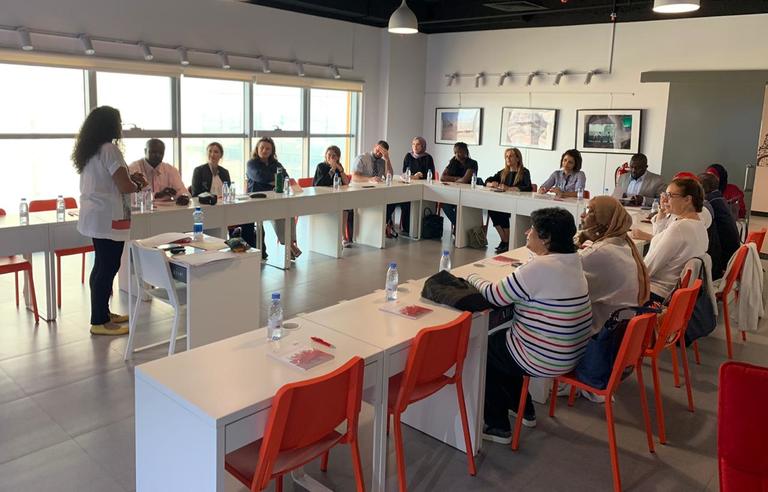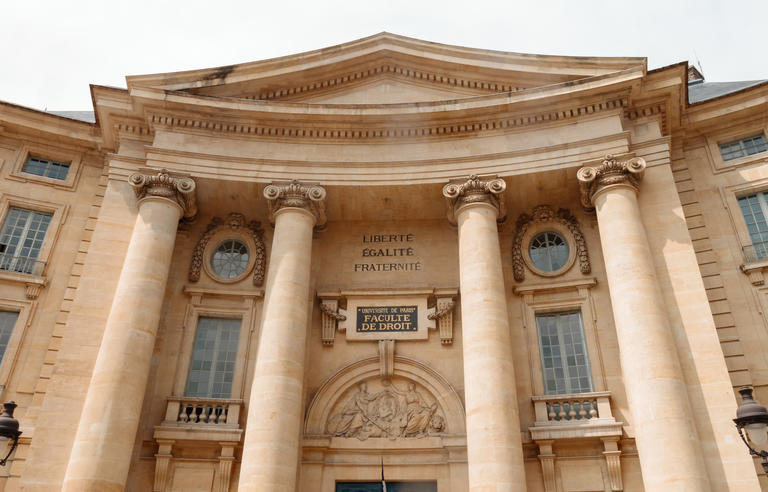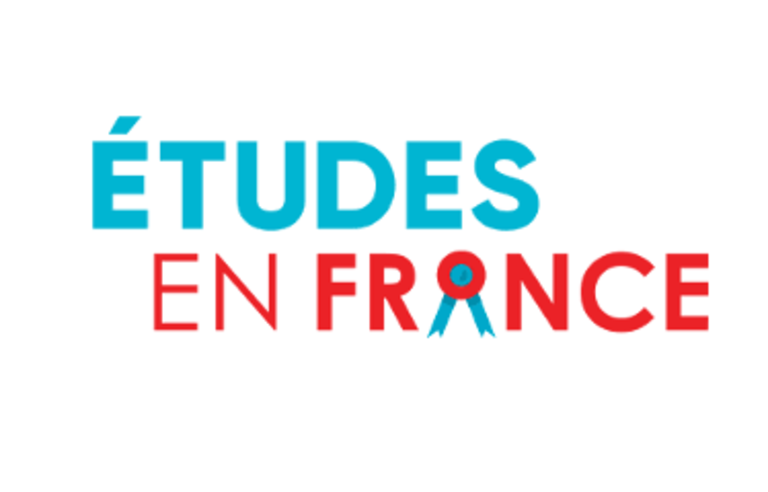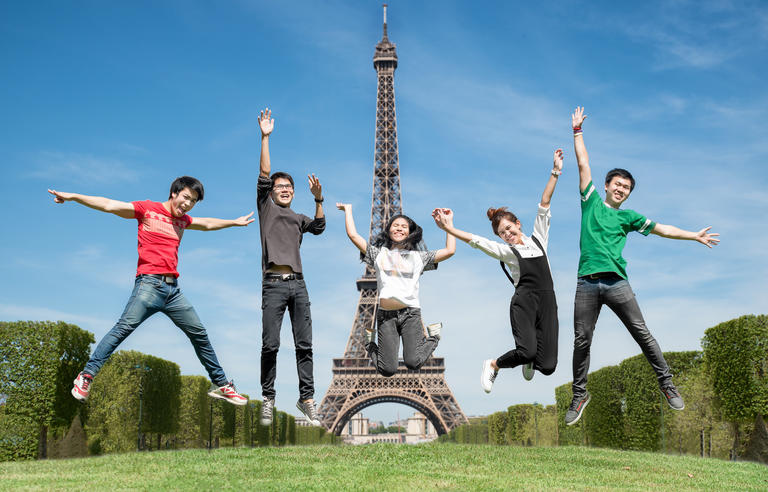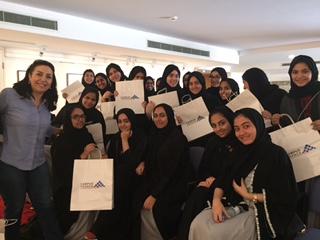France: a top destination for your education and a once-in-a-lifetime experience!
1. Programs funded and certified by the French government
The French government subsidizes a very large share of the actual cost of higher education (€14,000 per student per year).
No distinction is made between international students and French students: the admission requirements, the degrees awarded. Postsecondary degrees, based on the European structure of Bachelor, Master, and Doctorate, are regulated by the government, ensuring international recognition. Degrees recognized on a national level by the French government are equivalent from anywhere in France regardless of the institution that grants them.

The state will thus cover two thirds of the cost of your training. The total registration fee that you will be required to pay will be around:
- €2,770 per year at the licence (bachelor) level
- €3,770 per year at the master level
- €380 per year at Doctorat level
- €9000 average per year for any private Grande école
You may also want to check the possibilities to fund your studies with a scholarship.
2. French higher educational system
France’s system of higher education comprises 3,500 public and private institutions. The system as a whole offers excellent programs at all levels and in every discipline.
The universities: higher education for all
Universities receive 75% of the international students who pick France for their post-secondary education. These public institutes of higher education are subsidized by the French State. Located all around France, the universities confer national degrees (Bachelor's, Master's, Doctorate) certified by the Ministry of Higher Education that all have the same academic value.
Everyone who has a high school diploma or equivalent can enroll in first year. Science, literature, languages, arts, humanities, medicine and sport: university programs cover all of the areas of learning and research.
The Grandes Ecoles: the French culture of excellence
20% of international students are enrolled in a program in the Grandes Ecoles such as engineering schools, business and management schools, veterinary schools and a few others, these Grandes Ecoles are public or private institutes of higher education recognized by the State. They confer degrees for 5 years of undergraduate studies, and some award the title of Master. Much of the training is provided in English.
Admission to the Grandes Ecoles is very selective.
Specialised schools and institutes: specific programs
Nearly 3,000 public and private institutes of higher education offer courses in specific sectors such as business, management, engineering, sciences, political science, fashion design, archeology and so on.
Admission to these specialized schools and institutes is based on a competitive entry exam or the applicant's file. Studies there generally last two to five years.
Schools of art
In France, there are nearly 50 public schools of art and design directly overseen by the Ministry of Culture. Training in art, design and communication is provided in two steps of three or five years, with national degrees awarded on successful completion. Some also offer a third level of studies.
Four highly-reputable public schools of art are directly overseen by the Ministry of Higher Education: Boulle, Olivier de Serres, Duperré and Estienne. They confer national degrees in graphic design, spatial design, fashion and arts and crafts.
Some private schools or schools that depend on chambers of commerce and industry award their own degrees. These institutes of higher education in art and applied arts are highly selective, and enrolment is through analysis of the applicant's file, by competitive entry exam and / or interview. Applications may be filed online on the website Campus Art.
The national schools of architecture (ENSA)
The Ecoles Nationales Supérieures d’Architecture (ENSA - the national schools of architecture) form a network of 20 public schools overseen by both the Ministry of Culture and the Ministry of Higher education, Research and Innovation. Two other institutes, the École Spéciale d’Architecture (Special School of Architecture) and the Institut National des Sciences Appliquées (National Institute of Applied Science) in Strasbourg, are part of the same network and confer equivalent degrees.
More and more universities offer either bilingual programs or programs fully taught in English, which is of particular appeal for those wanting to learn or improve their French while specializing in another academic discipline. To check about programs entirely taught in English, click here.
However, if you decide to undertake a degree program taught in French, you will need to have at least an intermediate level of French. Many universities require the B2 (intermediate) certificate in the Diplôme d'Études en Langue Française (DELF) or sometimes the C1 (advanced) certificate, (the Diplôme Approfondi de Langue Française or DALF), depending on the course.
3. A sophisticated research enterprise
France ranks sixth in the world in terms of domestic spending on research and development. 42% of the doctoral candidates in France are internationals. For example, the country’s National Center for Scientific Research (CNRS) is the world’s leading research organization. 13 of 55 Fields medals (the equivalent of the Nobel prize for mathematics) have been awarded to French nationals.

4. A world-class economic power
France has the world’s sixth-largest economy. Its gross domestic product ranks second in Europe, and the country is Europe’s second-largest market, with 66 million consumers. France is also the world’s fourth-largest exporter of services and Europe’s leading destination for manufacturing investments.
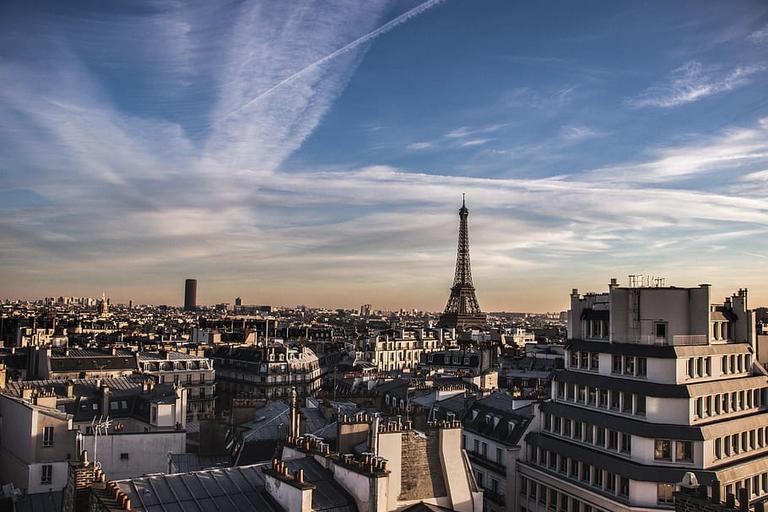
5. Advanced industries and international corporations that are leaders
France is home to 31 of the world’s 500 largest corporations. Several French industrial groups are leaders in their sector and have operations all over the world: Airbus (aeronautics); Total (energy); Orange (telecommunications); Sanofi (health); LVMH (luxury goods); L’Oréal (cosmetics); Danone (food products).
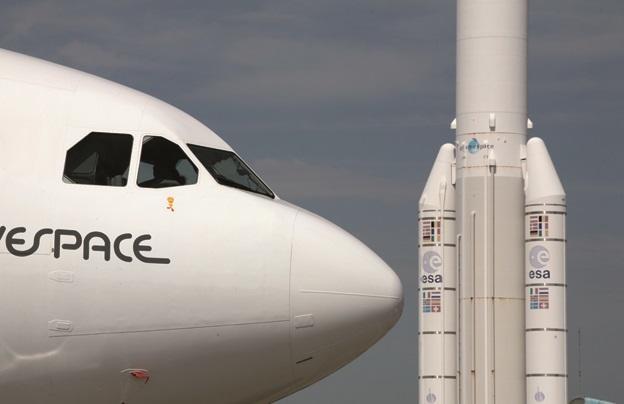
6. An environment favorable to innovation and to young entrepreneurs
France is home to more of the world’s top 100 most innovative companies than any other country in Europe. It ranks sixth in the world in number of international patent applications. 71 competitiveness clusters around the country form an appealing ecosystem of startups, laboratories, universities, and major corporations.
French Tech, with €200 million invested, supports the development of digital enterprises and attracts young talent.
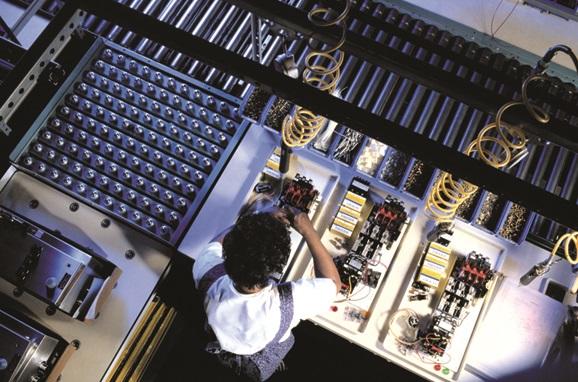
7. A pleasant, fulfilling living environment in the heart of Europe
Situated in the very heart of Europe, France is the world’s top tourist destination in terms of number of visitors from all over the world. For the third consecutive year, Paris has been named the world’s best city for students. France ranks fifth in the world in the responsiveness of its health services to the needs of the population. Furthermore, the 2024 Summer Olympics will be held in Paris!
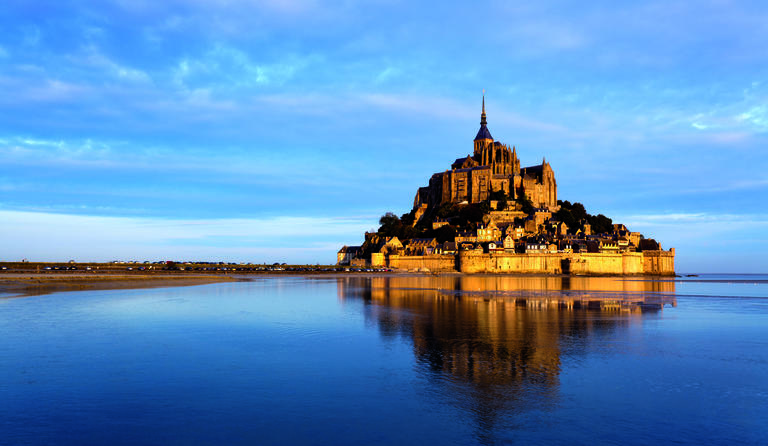
8. The art of living “à la française”
More than 40,000 monuments and protected sites, 41 cultural sites appearing on UNESCO’s world heritage list, 8,000 museums, 2,000 cinemas, and more than 500 festivals attest to the richness of French cultural life. French artists are influential in every creative field. With 15 winners, France is home to the largest number of laureates of the Nobel Prize in literature (Patrick Modiano won in 2014).
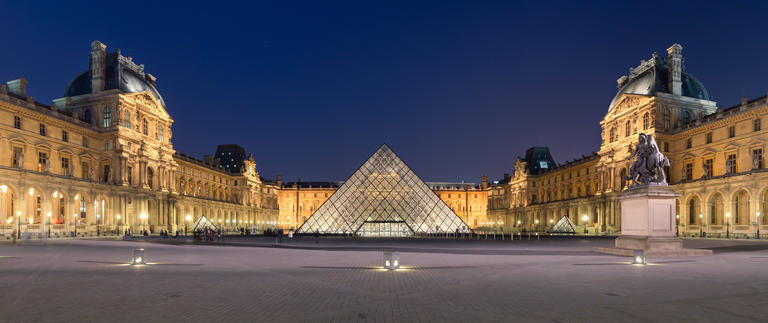
9. French, an international language
Spoken on all five continents and the official language of many states and international organizations, French is the world’s fifth most widely used language, with 274 million speakers. After English, French is the most widely studied language in the world. It is the world’s third most common business language and second most common language of international news.
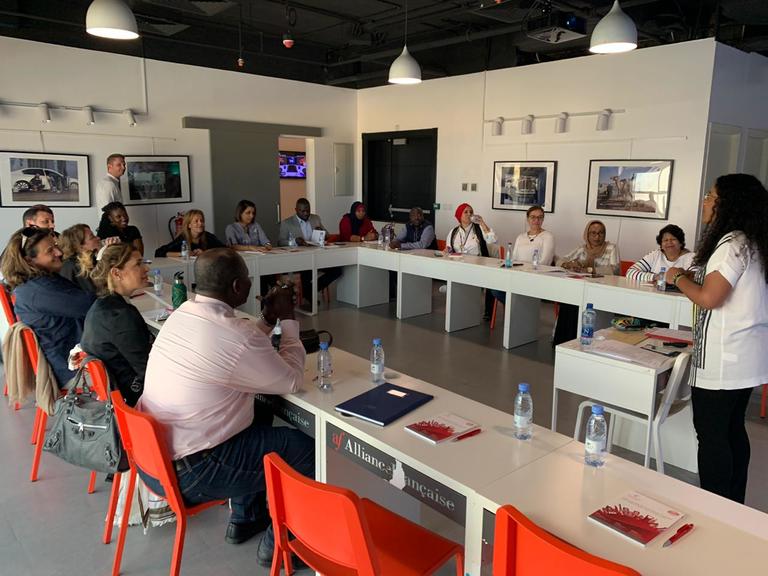
Therefore, we strongly advise you to start learning and working on your French skills. For this matter, the Alliance Française, the French language centre, is there to help you out in Al Khobar, Jeddah and of course, Riyadh. From beginners to advanced learners, all levels are represented, and are duly certified by the French Ministry of Higher Education. Therefore, you can benefit from their certificates to apply then to any study program in in France.
If you want more information, please look at their website: https://www.af-ksa.com/
Or you may contact their dynamic team who will guide you and answer your questions:
|
Alliance Française Al Khobar King Salman St, Al Bandariyah 05 – 34 54 71 44 |
Alliance Française Jeddah Jamjoom Mall, Palestine Street 012 - 661 22 80 / 84 |
Alliance Française Riyadh Diplomatic Quarter, Al Kindi Plaza, Gate 14 011- 281 65 39 / 40 |
10. An appealing destination for international students
With more than 295,000 international students at the postsecondary level, France trails only the United States, the United Kingdom and Australia. 80% of those who study in France report being satisfied with the quality of education and the value of their French degree. 9 out of 10 international students hold a positive view of their time in France and recommend France as a study destination.







